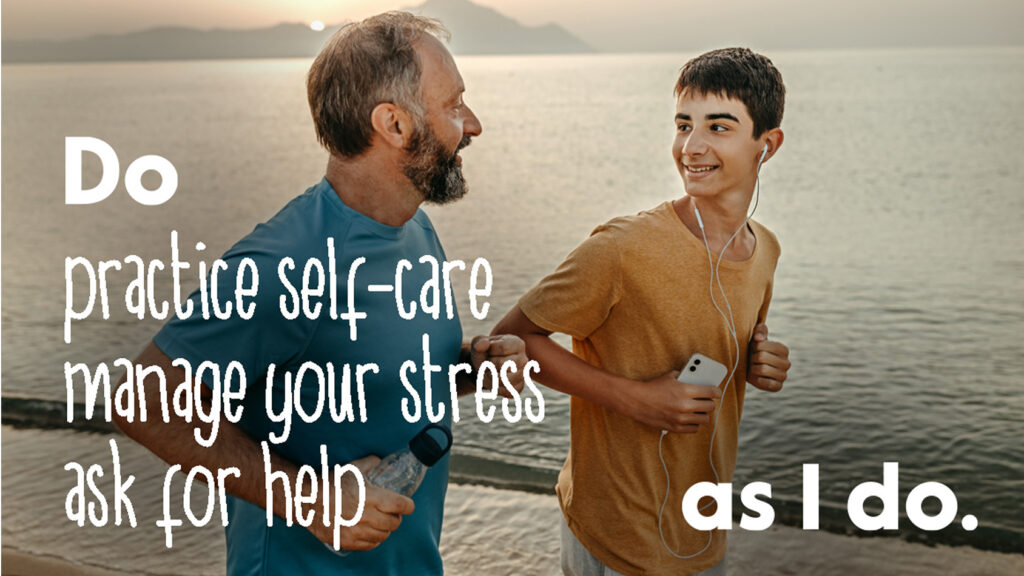Caring for You • 2 minute read
Do as I do: Why parents should model healthy behaviors.

How you manage stress, anxiety or other mental health issues can play an important role in shaping your teen’s overall well-being.*
When your teenager was a baby, they mimicked your smile. As a toddler, they playacted things you said and did. Throughout the teen years—though they may not show it—you continue to be a big influence on your teen, including how they handle emotional pressures.
Be the change you want to see in your teen.
Many teenagers deal with their stress in not-so-healthy, sometimes risky, ways. When parents practice healthy coping skills, like going for walks, exercising, meditating or even just reading a book, it can show your child that while life can be stressful, there are positive ways to deal with it.
In short, the best way to support your teen’s mental health is to care for your own. Here are a few strategies you can use.
Honesty is the best policy.
While a stigma still exists around mental health, teenagers are actually more open to talking about it than most adults. So if you’re struggling with stress, anxiety or even depression, don’t try to hide it: It’ll only come out in negative ways. Be honest about how you’re feeling and why. It can help your teen be more open to talking about their feelings as well.
Make healthy choices.
If yoga or meditation isn’t your thing, don’t underestimate the power of getting a good night’s sleep, spending time in nature or simply doing some deep breathing exercises. There are many ways to relieve stress, and they’re all teachable moments. Here are some stress management ideas for teens you may want to share.
Have an attitude of gratitude.
Research shows that regularly expressing gratitude helps boost overall happiness, leading to lower rates of stress and depression.** Keep a gratitude journal and periodically ask your teen to tell you something they’re thankful for in their life.
Know when to ask for help.
Sometimes, all these actions aren’t enough to make a change. If you seek out professional support, it can help normalize the idea of counseling for your teen if and when they need it themselves.
How to find a therapist who’s right for you
myCigna.com has an advanced search feature that helps you find a counselor, therapist or psychiatrist to fit your needs. Your Cigna Healthcare® medical plan includes both virtual and face-to-face care options.
*Ross EM. “The Critical Link Between Parent and Teen Mental Health.” Harvard Graduate School of Education. August 2, 2023. https://www.gse.harvard.edu/ideas/usable-knowledge/23/08/understanding-relationship-between-parent-and-teen-mental-health
** Diniz G, Korkes L, Tristão LS, Pelegrini R, et al. “The effects of gratitude interventions: a systemic review and meta-analysis.” Einstein (Sao Paulo). 2023 Jul 31;21:eRW0371. doi: 10.31744/einstein_journal/2023RW0371; https://pmc.ncbi.nlm.nih.gov/articles/PMC10393216/

